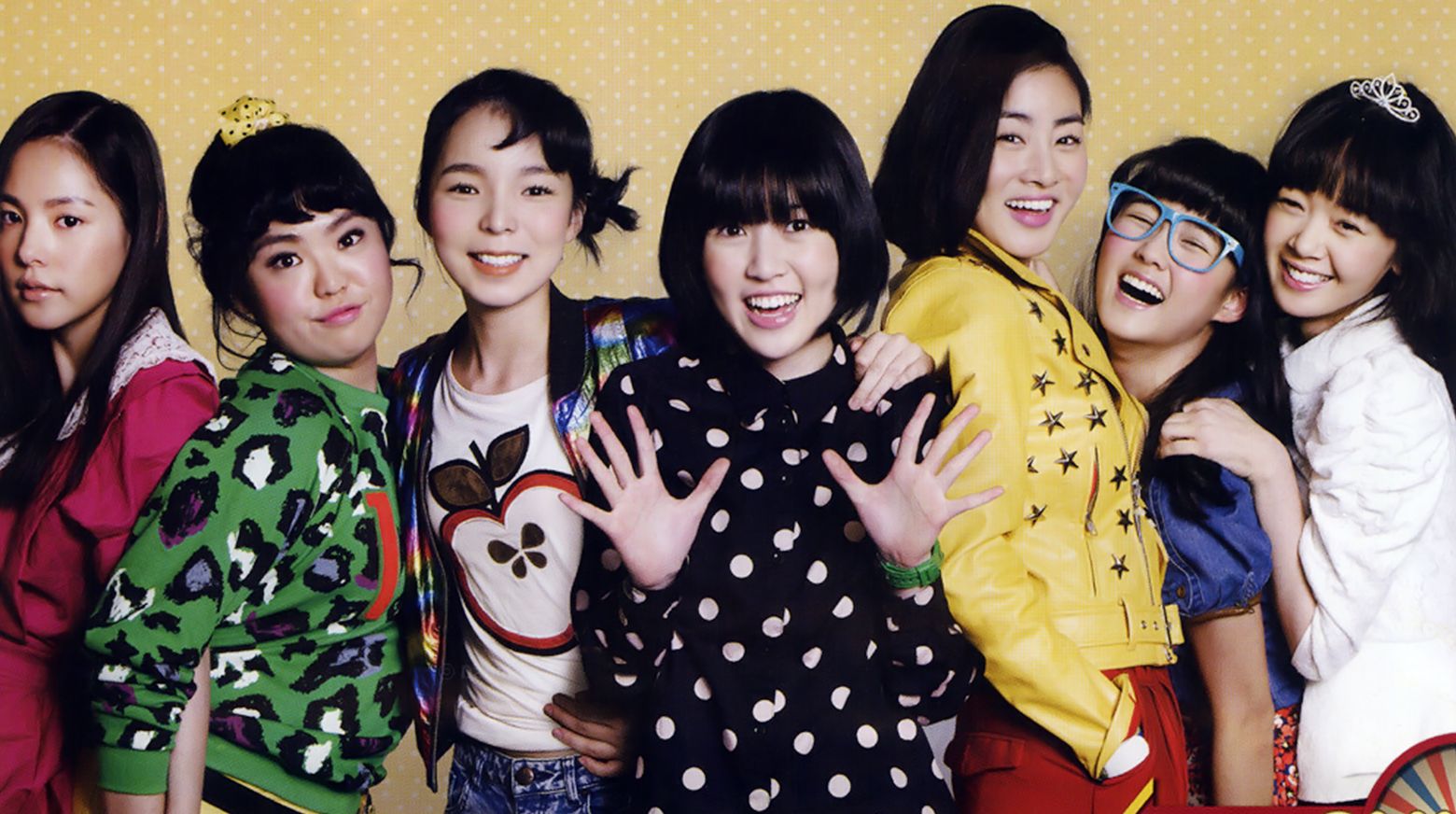By Chlotrudis Independent Film Society
Rating: 4.5 cats
Director: Kang Hyung-chul
Starring: Go Su-hee | Jin Hee-kyung | Kang So-ra | Kim Min-yeong | Park Jin-joo | Sim Eung-kyeong | Yu Ho-jeong

Original language title: Sseo-ni
Country: south_korea
Year: 2012
Running time: 124
IMDB: http://www.imdb.com/title/tt1937339/
Jason says: “SUNNY is flagrant nostalgia bait, but don’t count that against it – it’s genuinely funny, heartfelt nostalgia bait, and while that might seem odd to world cinema fans – few films that reach North America set in 1980s South Korea suggest people would miss it – it’s actually got the wit to make that work when it needs to.
“Lim Na-mi (Yu Ho-jeong) is in her early forties, a good wife and mother, and a dutiful daughter as well, making sure to visit her ailing mother in the hospital every day. It’s after one of those visits that she notes the patient name on the door of the next room, ‘Ha Chun-hwa’- and is shocked to discover that the woman in that room with two months to live (Jin Hee-kyung) is her best friend from high school. Back then, Chun-hwa (Kang So-ra) befriended Na-mi (Sim Eung-kyeong) when she was the new kid after moving to Seoul from the rural Jeolla-do region, including her in ‘Sunny’, her group of friends that included upbeat Jang-mi (Kim Min-yeong), foul-mouthed Jin-hee (Park Jin-joo), model-pretty Su-ji (Min Hyo-rin), pugnacious Geum-ok (Nam Bo-ra), and Miss Korea hopeful Bok-hee (Kim Bo-mi). Chun-hwa would like to get the group back together one last time before dying, and while Jang-mi (Ko Su-hee) and Jin-hee (Hong Jin-hee) prove easy enough to find, the rest will take a little more effort.
“There’s also stuff going on with Na-mi’s teenage daughter Yae-bin (Ha Seung-ri) in the present and 1985 subplots involving a boy Na-mi has a crush on and a similarly composed group of girls from another school. It’s a busy movie that splits its time roughly equally between 1985 and 2010, throwing a lot of period pop – both western and Korean – onto the soundtrack. Plenty of garish 1980s fashions make it on-screen too, making the flashback scenes especially colorful, especially when you consider that the girls aren’t wearing school uniforms like Yae-bin and her classmates. That’s likely a pretty deliberate sop to nostalgia; kids then were colorful and individual even when buying the same brands, while the next generation is missing that sort of variety.
“It goes beyond that, though; compare those fashions to the sensible blacks their adult selves wear. Although SUNNY is by no means a subtle movie, delivering its point about Na-mi needing to become the protagonist in her own life story in pretty much those exact words, it reinforces that goal with great skill without ever allowing it to become overwhelming. In some ways, it’s a very pointed indictment of the roles society has for women – while the material comfort some of the ‘Sunny’ girls enjoy as adults covers it up, every one of them wound up something less than their high-school ambitions, and their pregnant homeroom teacher completely disappears from the film once she has her baby. It’s not that marriage and motherhood are necessarily limiting, but look at how even Na-mi’s mother treats her as secondary to her husband – who, prior to leaving on a business trip, gives her an envelope of cash for while he’s away – at the start. It’s not harped on, but the pattern is very clear.
“Happily, this seldom is given more attention than the film’s first priorities, which are being funny and poignant. The humor is wonderfully brash and foul-mouthed; based on the inventive profanity in the subtitles, Korean is apparently a fantastic language for swearing, especially once you figure rural dialects into the equation, and writer/director Kang Hyung-chul uses this well, both when having it come out of unsuspecting mouths and to show the girls’ comfort with each other. It has what may be the funniest riot scene ever put on film as Sunny and their arch-nemeses face off at the same time that the police try to put down a protest, an inventive comic set-piece packed so full of gags that it that would work as a short film on its own if removed from the feature. There’s also something really wonderful about the way the women use tragedy to pull together and create some happiness.
“A good movie usually has a good cast; this one effectively has two. The actresses playing Na-mi are both impressive in the different paths they take toward self-confidence; though Shim Eun-kyung’s young Na-mi is more obviously awkward than the elegant adult played by Yu Ho-jeon, it’s easy to see them in each other. The Chun-hwas are more obviously the same person, with both Jin Hee-kyung and Kang So-ra showing a sort of innate leadership, even when things get rough. Lee Yeon-kyung and Kim Sun-kyung are devastating in different ways as members of the group who have fallen on hard times since graduation, and Min Hyo-rin is nice as the aloof Su-ji and even better when she gets to stretch.
“Kang Hyung-chul’s script is quite perfect; he uses money to solve a few too many problems and when he needs to explain why the girls lost touch, it involves a subplot really coming out of nowhere in the last act. He and cinematographer Lee Hyung-duk do at least cap that off with a brilliant, horrifying shot, one of several small touches that stand out as being more effort than you might otherwise expect to find in a nostalgic chick flick.
“And, really, this is more than I expected to write about it. It’s unexpectedly good, though; thoroughly entertaining at first blush and unexpectedly rich on further examination. 4.5 cats
“Seen 6 August 2012 in Concordia University Cinema de Seve (Fantasia 2012, DCP).”
